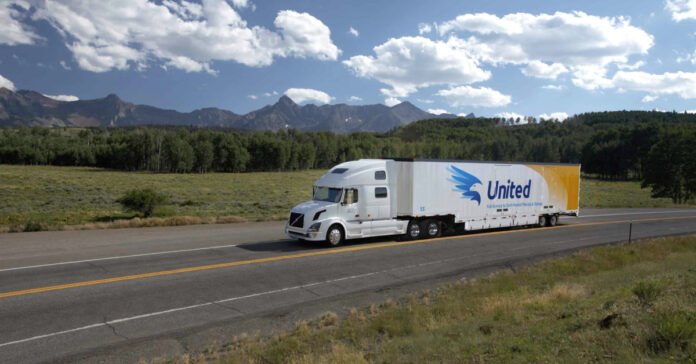I have moved five times as an adult, and every single time it was a positive experience.
I didn’t move randomly, but did so with intent: from big cities to smaller cities, from good jobs to better ones. Coincidentally, I moved from places with a high cost of living to lower cost of living.
Over the course of the moves, I went from rental apartments in the city to owning a home outside it. All but one home made me money when I sold it, and each new home came with more land. My first house was on a corner lot with room for a garden and not much else. My current house is on about 20 acres.
One home sold at enough of a profit to make the down payment on the next and pay off my credit card debt for the first time since I had graduated college. I had carried credit card debt for 18 years; paying it off was life-changing. I’ve not had credit card debt since.
My final move, as you can read in the “our property search” section, resulted in my wife and me moving to the side of a mountain in the middle of nowhere. That’s been my best move, both from a prepper standpoint and a lifestyle perspective.
What I don’t understand is why so many people are reluctant to move. When done right, moving can be a very positive thing, a way to move on with your life, move away from bad influences, and even move up in the world.
Starting Fresh
There’s something to be said about starting afresh. When I move, I get to start over. Move far enough and it’s a clean start in a place where no one knows you and has preconceived notions about you.
When we moved to our prepper property, I left a place where I was well known by a segment of the population because of my job. I’m in another state, hundreds of miles away, so any reputation—good or bad, depending on the audience—was left behind. I am now known as just a retired guy who keeps bees. That’s pretty gray man!
Each time we moved, we were smarter and more mature. We also had a better idea of what we wanted, not only out of life, but in our home. As a result, each house has been better than the last. This house may be smaller than the last, but it is cheaper to heat and cool, has far lower taxes, and is easier to maintain. There is something to be said for downsizing, but the prepper part of me wishes we had more storage space.
Just Do It
I read an article two days ago about flooding in Vermont, and how it might just be the way things will be from now on. A few days prior, I read a post on another website in which someone complained about all the leftists who had moved into his community. I’ve seen people in the Houston area grousing that they have been hit by so many hurricanes and power outages. My advice to them all is simple: move. Search out something better and leave the bad behind.
To make your move a positive thing, make a list of what you like about your current location and what you dislike. Then make a list of what you wish you had. Meld the two together so you create a list of things your new home and location must have and the things that are added bonuses. For my wife, a must have was a garage. For me, it was wood heat.
Then look at area amenities and find out which ones you need the most. For example, in the past 25 years, we’ve gone to the emergency room once, and it was only for stitches. As a result, we were comfortable living 45 minutes away from the nearest hospital in a town where serious emergencies are airlifted elsewhere. People with known heart conditions will have different priorities when it comes to local medical support.
Besides our must have list of prepper things, like low population density and being far from an interstate, there were also comfort things, like cooler temperatures. You can move to get away from something—like flooding—but why not move towards something you like? Maybe that’s room to have a garden, or a place where you can legally shoot guns off your back deck.
It’s also a good idea to lock in a job before you move. I had a job locked in three times before we moved, and once they even paid for my move. You may not get paid as much in a rural area, but your dollar will stretch further. I remember how excited we were after we left New York City and the cost of diapers, milk, and beer was so much lower. As you can imagine, our priorities have since changed, but we still enjoy low prices.
Take the Risk
Picking up and moving hundreds of miles away means leaving behind everything you know. Many consider that risky or scary. For me, it’s always created new opportunities.
If you want the same results you always get, keep doing what you’ve always done. If you want to change the results, change your behavior, or, in this case, change your location. Nothing will force you to shake things up like replacing the same-old same-old with a blank slate.
Hate your commute? Move.
Think your job sucks? Apply for a different job out of state and move.
Don’t like the people your kids associate with at school? Move.
Worried about a hurricane or a tornado? Move to somewhere that doesn’t have them.
You don’t have to live in Idaho or Montana to be a prepper. In fact, we looked there and are glad we decided against moving west. Think West Virginia, Maine, Michigan’s U.P., or the Ozarks. I think mountains are good for providing remoteness and isolation, but there are days I would trade that for more pasture land.
What About Kids and Friends?
I tried to avoid moving when the kids were in the middle of high school, but at any other time, I think moving can be good for kids. Remember, we want children who are not scared of change, who can be flexible and adaptable, and who are resilient and able to start from scratch and build new relationships. Moving once or twice during their childhood helps achieve that.
Some people worry about leaving behind friends, or their kids leaving behind friends. Worry not; you will both make new friends. And if the friendships you left behind are that great, they will come and visit you. Besides, it’s not like they charge for long-distance calls any more. Social media, gaming, messaging, video chat all allow you to stay in touch, if you want. Once you get there and assimilate, you may find you don’t.
Make Plans
I’m not suggesting you go online and buy the first remote home you see on 20 acres with a wood stove. I am suggesting you do some planning and conduct some online research. Check out the state’s laws on things like concealed carry and whether you can butcher your own meat. If you want to raise goats, can you sell raw goat’s milk in your county of choice? If you want to sell baked goods from your home, does your kitchen have to pass a health department inspection? Those are the things it is good to know before you move.
Once you’ve narrowed it down to a few potential locations, then visit them. One thing we found useful was to visit the nearest grocery store because you can tell a great deal about a community by its grocery store. We also ate in local mom-and-pop restaurants. I also recommend stopping at the local gas station and buy a pint of oil or a gallon of windshield wiper fluid and the local hardware store to buy some weed whacker twine and see how they treat you. Weed out places where you don’t seem welcome, where the politics don’t match yours, or if the laws appear too tyrannical.
We scouted multiple states and worked with four real estate agents before we narrowed things down. We made countless trips and three offers before we locked in what we wanted, and then we dealt with multiple complications before we closed. Moving here wasn’t easy, but it has been so worth it.







